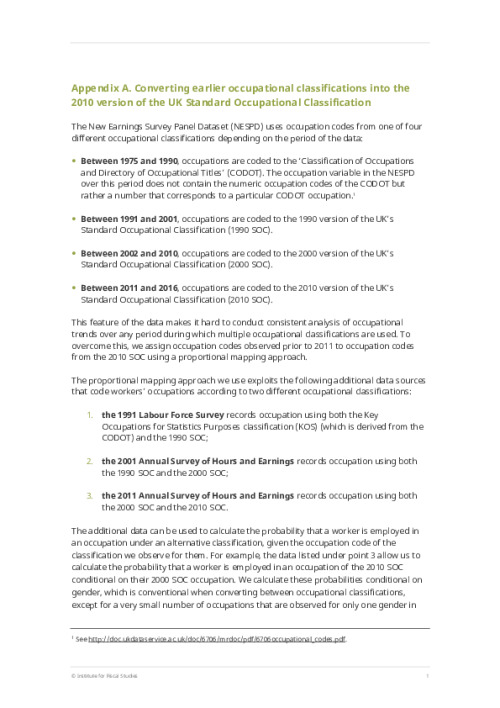Interest in the issue of career progression has been growing, fuelled by a decade of stagnant productivity and pay growth (even before the COVID-19 crisis) and concerns that changes in the labour market – such as the casualisation of work in the gig economy – are making it harder for some groups to progress.
However, debate on this topic is taking place in the absence of much hard evidence on the question at its core; we actually know very little about how pay and career progression have been changing. Here we provide new evidence on how pay and occupational progression during the crucial early stages of careers have changed over the last few decades.
Key findings
- Men born in each decade since the 1950s, and women born since 1985, started their careers in occupations further down the wage ladder than earlier cohorts. For example, when compared with those born in the 1970s, men born in the late 1980s were at least twice as likely to have been bar staff, kitchen and catering assistants, or call centre workers in their first full-time job; and women were about twice as likely to have been waitresses or care workers.
- The deterioration in the ‘first occupation’ for young women born in the late 1980s marks a sharp reversal of the trend seen over previous decades. Their starting position on the occupational ladder looked more similar to that of women born in the 1960s than to women born in the early 1980s.
- All of this means that young workers are increasingly reliant on occupational progression in the early years of their careers if they are to attain high wages. This is because they are trying to catch up from a lower starting point on the career ladder, and because the wage growth they can expect in the absence of occupational progression has been so weak in recent years.
- Rates of progression up the occupational ladder (ranking occupations by their average wage) in the early years of people’s careers have tended to increase across successive generations, for both men and women – but this trend came to an end for men born in the 1980s. This means that the most recent cohorts of men have both started lower down the occupational ladder than their predecessors and climbed it more slowly.
- One of the greatest economic risks facing young people as a result of the COVID-19 pandemic is that economic uncertainty and reduced hiring will make it much harder for them to climb the career ladder when in work. If this happens, possibly alongside a substantial increase in youth unemployment, then the cumulative impact on their economic position in years to come could be very large.













